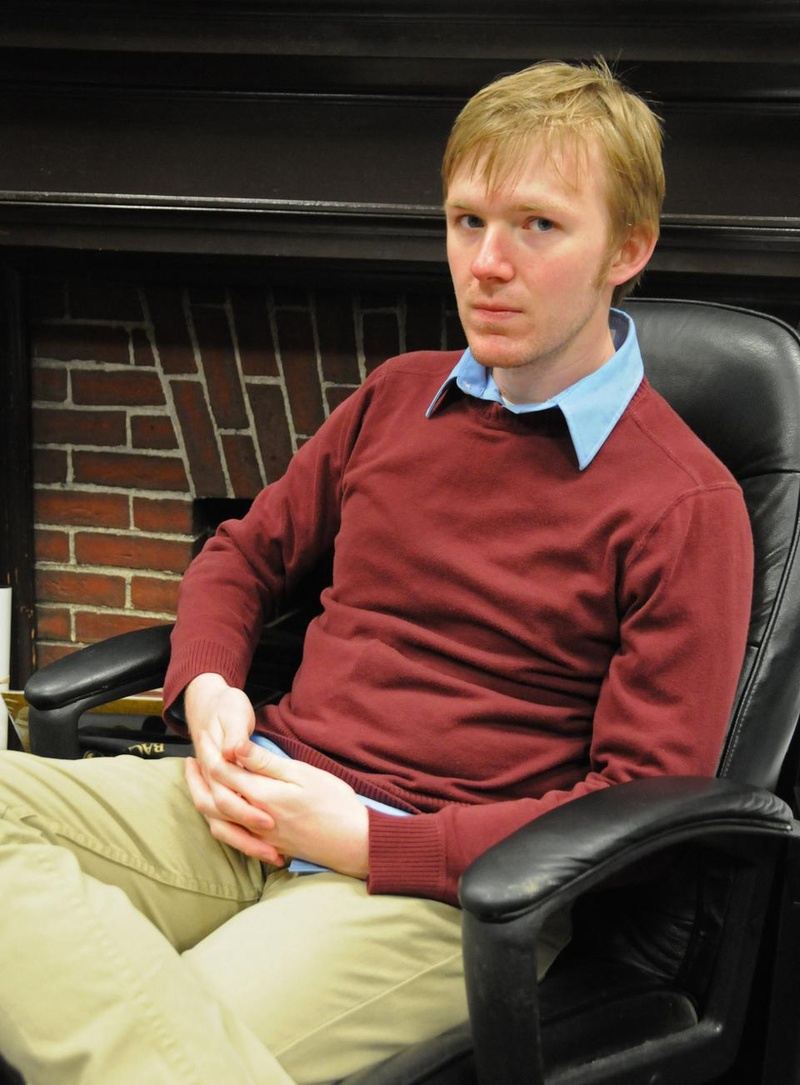“My inspiration has always come from my teachers. Throughout high school my English teacher, seeing something special in my writing, encouraged me to continue writing, and so I did,” says Justin T. Keenan ’10. Keenan, a member of the Harvard Book Review, The Harvard Advocate, and Harvard’s poetry magazine, the Gamut, has seen several of his stories published on campus, and recently submitted a collection of stories as his creative thesis in the English department.
Keenan was honored with Harvard’s Edward Eager Fund Prize last year for his short story, “Snow.” The piece is included in Keenan’s collection, “Alive Enough,” whose stories are set in and around his home state, Kentucky. Titled ironically to reflect Keenan’s emotional and physical state at the time of his thesis deadline, “Alive Enough” addresses themes of melancholic family dysfunction and emotional confusion, presented in subtle, but evocative language. Despite the setting and the occasional piece—such as “The Dog Story”—that borders on memoir, Keenan says his work does not stem primarily from personal experience. “Your writing is always informed by experience. We all have a vocabulary of narratives, impressions, and images that is largely defined by our personal experiences. I draw a lot from my background, but I don’t consider most of what I write to be autobiographical,” he says.
Keenan, who transferred to Harvard after freshman year from Transylvania University, has spent his three years at the college steadily developing his writing. He maintains, however, that his environment is not necessarily the most conducive for writing. “I think it is important to remain conscious that you are in a very small world when you are in the Harvard literary scene,” he says.
“I don’t mean to say something so banal as ‘be yourself’ or ‘write what you want’,” Keenan continues, “but to write the things that you need to write about or that will move you regardless of whether some people say they are interested in them or not.” Keenan attempts to maintain the style and content of his work despite expectations he has encountered. “I think there is a real disparity between what I think about when I write and what you are taught to look for in your English classes, or what the Advocate looks for in the Fiction board.”
The young writer, who cites authors such as Annie Proux and David Foster Wallace as major influences, is unsure what his post-graduation plans will entail. “I don’t know what I am doing next year, but I’m going to continue writing,” he says, voicing his intentions to continue seeking publication for his stories in magazines and journals. “It is a shame that so many people here feel that they need to begin a career or begin down a certain path as soon as we graduate,” Keenan says. “But in reality, we are all going to be fine. Everyone needs to chill the fuck out.”
Read more in Arts
Rebecca Lieberman ’10













